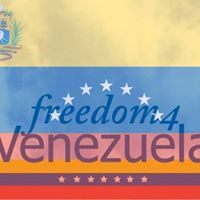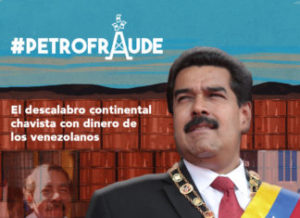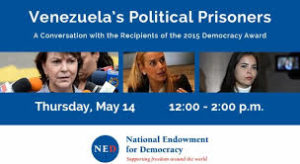 The chief of staff of opposition leader Juan Guaidó was detained in a pre-dawn raid on his home by Venezuela’s intelligence forces, igniting a new flash point in the U.S.-backed effort to drive President Nicolás Maduro from office, the Washington Post’s Anthony Faiola
The chief of staff of opposition leader Juan Guaidó was detained in a pre-dawn raid on his home by Venezuela’s intelligence forces, igniting a new flash point in the U.S.-backed effort to drive President Nicolás Maduro from office, the Washington Post’s Anthony Faiola
In addition to serving as Guaidó’s chief of staff, Roberto Marrero was the longtime lawyer of opposition leader Leopoldo López, [a recipient of the NED’s 2015 Democracy Award] Guaidó’s mentor who was arrested in 2014 and remains under house arrest.
“The government is closing Guaidó’s circle, measuring reactions domestically and abroad. And sending a message: we are still here,” said Felix Seijas, a political analyst and director of the Delphos polling agency.
Until now, only a handful of the more than 50 countries that back Guaidó—Canada, Panama, and a few European countries—have tightened the diplomatic and economic screws on Maduro, notes Christopher Sabatini, Executive Director of Global Americans,* Adjunct Professor at Columbia University’s School of International and Public Affairs (SIPA), and Non-Resident Fellow at Rice University’s Baker Institute.
 Washington should work with its European and Latin American partners to back any new round of negotiations with the threat of sanctions should Maduro fail to meet certain preconditions for successful talks, such as releasing political prisoners, sticking to an established timeline, and stepping down in favor of an interim government once a date for elections has been set, he writes for Foreign Affairs:
Washington should work with its European and Latin American partners to back any new round of negotiations with the threat of sanctions should Maduro fail to meet certain preconditions for successful talks, such as releasing political prisoners, sticking to an established timeline, and stepping down in favor of an interim government once a date for elections has been set, he writes for Foreign Affairs:
Any possible agreement for fresh elections between Maduro and the opposition must also allow for the reconstruction of Venezuela’s corrupted state institutions in collaboration with moderate Chavistas. Necessary reforms include the restructuring of the armed forces along less partisan lines and the disarming of the two paramilitary groups that answer to Maduro, the special action forces and the groups of armed civilians known as colectivos. An interim agreement would also have to reconstruct Venezuela’s Supreme Court and the National Electoral Council, currently packed with Maduro supporters, by appointing independent, consensus candidates to those bodies.
 No one here doubts Maduro would fall if he loses the support of his top military commanders. Yet, the army’s high command remains loyal. Political analyst and pollster Luis Vicente Leon thinks army commanders are afraid to switch sides until they know they’re safe, NPR’s Philip Reeves adds:
No one here doubts Maduro would fall if he loses the support of his top military commanders. Yet, the army’s high command remains loyal. Political analyst and pollster Luis Vicente Leon thinks army commanders are afraid to switch sides until they know they’re safe, NPR’s Philip Reeves adds:
LUIS VICENTE LEON: You need to create a clear strategy [perhaps one based on “assertive democratic idealism“?] that gives to them the trust they need in order to produce any change in Venezuela. Otherwise, they are going to maintain the status quo.
REEVES: Leon makes another point – Maduro may be highly unpopular. In a poll last month, he scored 14 percent compared with Guaido’s 61. Yet don’t make the mistake, says Leon, of thinking the collapse of Venezuela’s economy will necessarily be enough to bring Maduro down.
LEON: They thought the same with Cuba, Iran, Syria, Zimbabwe or North Korea.
*A partner of the National Endowment for Democracy.







